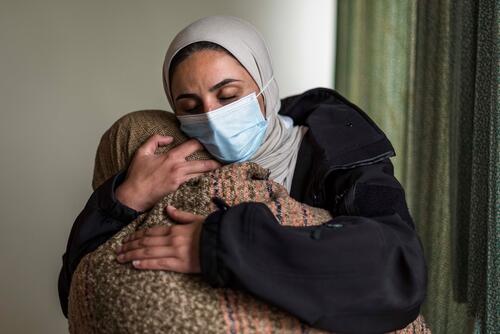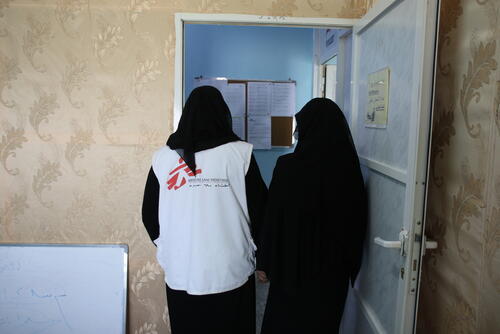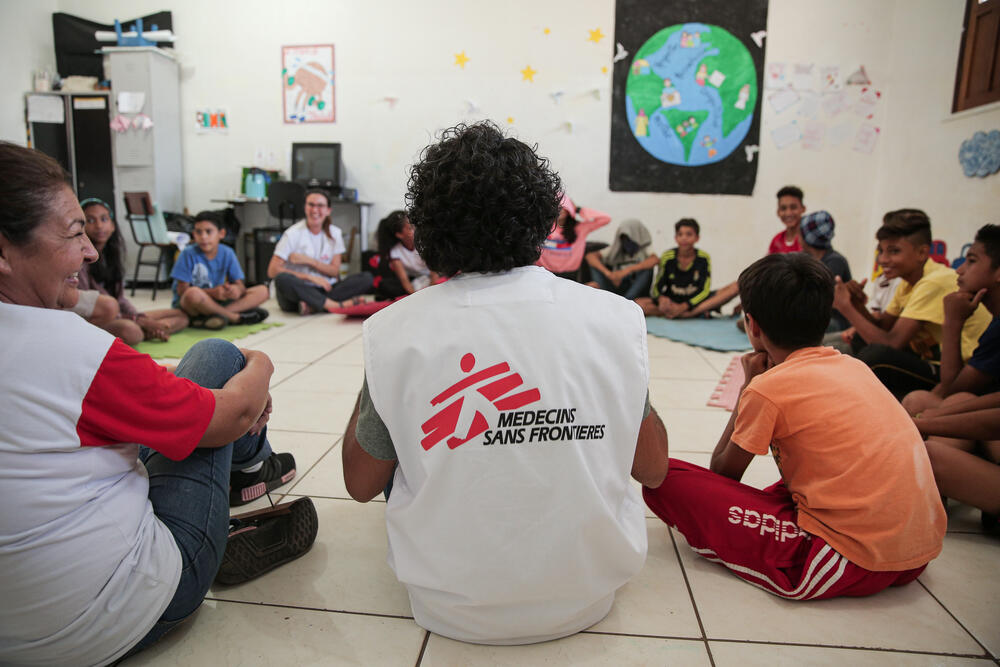Mental Health
The psychological impact of a humanitarian emergency can be severe.
Our teams provide emergency medical aid in catastrophes all over the world — armed conflicts, natural disasters, famines and epidemics. MSF doctors and nurses are often seen treating physical ailments: bandaging the war-wounded, rehydrating a cholera patient, performing an emergency caesarean section. But for people who have lived through terrible events, the psychological consequences can be severe.
Worldwide, around one in four people will suffer from a mental health problem during their lifetime, yet around 60 percent will not seek help. These figures increase dramatically when factors such as violence, persecution, the need to flee, disasters or a lack of access to healthcare are involved. In 1998, MSF formally recognised the need to implement mental health and psychosocial interventions as part of our emergency work.
Depression and anxiety
People caught in the wake of a humanitarian crisis can suffer from debilitating depression and anxiety, including conditions such as post-traumatic stress disorder (PTSD).
Many patients seen by MSF will have been separated from their families or witnessed the deaths of loved ones. Others may have been forced to flee, searching for shelter, supplies and safety. These events can immobilise people with depression and anxiety at just the time when they need to take action for themselves and their families.
Mental health care is also part of services for HIV/AIDS, tuberculosis, nutrition, sexual violence and during disease outbreaks and disasters.
MSF’s mental healthcare aims primarily to reduce people’s symptoms and improve their ability to function. Often this work is done by local counsellors specially trained by MSF. MSF psychologists or psychiatrists provide technical support and clinical supervision. When appropriate, MSF’s counselling services may reinforce or complement mental healthcare approaches that already exist in the local community. At the same time, specialized clinicians treat severe mental illness. But severe illness accounts for a minority of the cases that MSF sees.
Needs are high, and MSF continues to expand its mental health programs. In 2017, MSF’s mental health teams performed more than 300,000 consultations worldwide.
1 in 5
PEOPLE EXPERIENCE MENTAL HEALTH ISSUES DURING A HUMANITARIAN EMERGENCY
383,300
MENTAL HEALTH CONSULTATIONS PROVIDED BY MSF TEAMS IN 2021
54
COUNTRIES WHERE MSF PROVIDES MENTAL HEALTHCARE
Increasing capacity
People seek mental health support for many reasons — the agonizing loss of a child in an earthquake, the trauma of sexual violence, getting caught up in a violent conflict. MSF mental health workers listen to their stories, and help them find ways to cope and continue with their lives. Being forced from home is a particular problem for people already suffering from mental health problems. They can lose access to existing treatment and routine care, which may cause them to develop further symptoms or more severe conditions.
However, treating severely disturbed people remains a challenge for MSF teams, given the complexity of managing psychiatric medication and medication. Increasing our capacity to treat these illnesses remains a priority for MSF. Establishing mental health care programmes in emergency situations is not straightforward, especially when violence and trauma may be ongoing, or language and cultural barriers may prevent people from seeking support. Our community outreach teams increasingly play an important part in tackling this. It is often difficult to guarantee continuity of care in unstable and dangerous settings. However, the needs are high, and MSF continues to expand its mental health programmes.
MSF staff and mental health
For MSF's emergency response work to be carried out, there is another important issue: the mental health of our staff.
Often away from home for long periods of time, working under pressure and required to process traumatic events, it is vital that humanitarian aid workers are also given the professional support and headspace they need.
Local MSF staff will often come directly from the communities receiving our care. While this is useful for our teams to better understand social and cultural issues, it also means that these staff members are closer to the same traumatic events experienced by our patients. Psychological support is therefore provided for our local staff.
For international team members, coming home from an assignment is often the time when mental health support becomes the most necessary. Many struggle with the knowledge that, for their patients, returning home may not be an option. However, MSF remains committed to helping our staff re-adapt to their normal routine and process their experiences.
Mental Health: News and stories


Mental health in Yemen: The number of severe cases is astonishingly high


